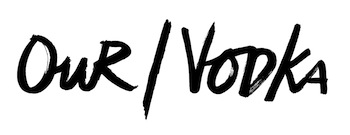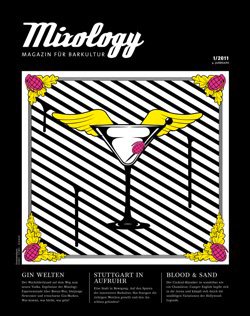This article first appeared in MIXOLOGY magazine. MIXOLOGY is a bar and beverage magazine based in Berlin, Germany.
Author: Helmut Adam
Translation: Kirstin Müller
Size often results in loss of innovation. Two global corporations are currently sampling ideas from the start-ups realm. Diageo is experimenting with liquid crowdsourcing and in Berlin The Absolut Company and Pernod Ricard have set up the boutique distillery “Our/Berlin”. While for Diageo it is still early days, Pernod Ricard is splashing out on a new vodka in Berlin.
 How are global spirits companies reacting to the rise of local micro distilleries? It is an open secret that businesses, having reached a certain size, run the risk of no longer being innovative. The more layers of management necessary in administrating decision-making, the less inclined creative thinkers within this environment feel to develop and share their ideas.
How are global spirits companies reacting to the rise of local micro distilleries? It is an open secret that businesses, having reached a certain size, run the risk of no longer being innovative. The more layers of management necessary in administrating decision-making, the less inclined creative thinkers within this environment feel to develop and share their ideas.
There are even specific economic theories investigating this phenomenon. According to “Dunbar’s Number”, also known as “The Rule of 150”, you can only uphold sustainable social relations up to a certain number. In practical terms, this means that businesses cannot sufficiently maintain their employees’ belief in and identification with the company beyond a certain size. Insufficiency means that employees lose interest in sharing their creative potential.
Buying replaces developing
Global corporations like Diageo or Pernod Ricard are of course way past this in size, even if their local distribution may be run by small teams. Still, in companies with such a large market share, the strings are usually pulled centrally. Regional branches submit their quarterly numbers to the holding company. Only specifically vital key markets are not put on a tight leash. On the quest for growth, shareholders need to be spoon-fed the right stories, investors need to be satisfied.
Hence, big companies resort to either buying out promising brands and start-ups or committing them into a joint venture as soon as they have proven successful or large enough. There is much less risk involved in that, than in developing new products in-house. In the industry, this buying strategy is triggered at the magic threshold of 100.000 cases. Examples in recent years include the Diageo joint ventures with manufacturers Ketel One and Zacapa or the buyouts of Chambord and St. Germain.
Crowdsourcing and corporate start-ups
Currently, global players attempt to establish new products for their portfolio even beyond the realm of such conventional measures. Bartenders participating in Diageo’s World Class Programme are encouraged to submit their ideas for a new beverage. In May 2013, a jury of Diageo professionals and industry heavy-weights such as Salvatore Calabrese and Jörg Meyer is going to evaluate the submissions and select a winner. The prize is a 5% share of earnings after tax or an installment of
£ 25.000 (about € 29.000) alternatively. This crowdsourcing-campaign closes on March 18th 2013.
Pernot Ricard, Diageo’s strongest competitor in many markets, is taking a different route.
Last Friday, a boutique distillery producing a new vodka has opened its doors in Berlin’s trendy hot spot Kreuzberg. The new product is called “Our/Berlin”. The distillery is run on its own terms, independently from Pernot Ricard Germany.
Initiators behind the “start-up” (a term that sounds more than off in this context) are The Absolut Company and the international holding of the corporation, the Pernod Ricard Group. In order to simulate start-up-criteria, the new vodka is not available via the usual distributing channels of Pernod Ricard. At the same time, Berlin clubs and bars are major target markets, as the company’s website states. With 37,5 % Vol. and at 350 ml per bottle, “Our/Berlin” is obviously meant to cover a different segment than Absolut Vodka, its bigger brother in the cooperation.
From a PR-Agency with love
An agency called „Paul Sanders“ is Pernod Ricard’s partner in crime. They list “consulting, production, press relations and guest management” as their main areas of expertise and have so far been involved in fashion and lifestyle projects. On their website, the agency describes their cooperation: “Pernod Ricard provides the distillery, the recipe and the ingredients. Paul Sanders are in charge of production, sales and marketing.”
The project is reminiscent of Held Vodka, a product now well established in the in-spots of Hamburg and Berlin. Like “Our/Berlin”, it is also the product of an agency, but without its own distillery. Held Vodka, as well the recently launched Korn schnapps Steinreich by Theo Ligthart and Steffen Laube, former Berliner missionary for fritz-kola, are bound to be the main competitors of the new corporate product. The name “Our/Berlin” is a clear statement for a local target market.
Can corporations reinvent themselves as start-ups?
Åsa Caap, “Director for Global Innovation Projects“ at Pernod Ricard and in charge of the project – in spite of the theory described above – believes her company grew from innovation. In an interview with MIXOLOGY ONLINE, she said: “Since I’ve been working in that position I’ve seen a lot of innovation inside Pernod Ricard. The origins of Pernod Ricard are entrepreneurial, as both Ricard and Pernod were innovative entrepreneurs.”
The idea for “Our/Vodka“, as the project’s umbrella brand is called, came to life over two years prior. According to Caap, developing a strategy on how Pernod Ricard could locally produce a vodka, that would have actual local market relevance, was a lengthy process.
“We decided very early that Berlin was a good market to start from”, Caap explains. The German capital is indeed the first major city to test the concept. If successful, “Our/Stockholm“, “Our/Detroit“ or “Our/Paris“ might soon follow suit.
Concerning the PR-agency, Caap says they were mainly concerned “with the people involved”. They had met with various potential partners in Berlin, but with Pauline and Jon from Paul Sanders there had been an instant connection. For this project in particular, Pernod Ricard had wanted partners “from outside of the industry”, in order to create “something truly new”. Vincent Hoarau of “The Pernod Ricard Research Centre” in Paris provided the technological know-how for the project.
The production process of Our/Vodka
How exactly is “Our/Berlin” Vodka produced? According to Åsa Caap, the final product is part locally purchased alcohol of regional descent, part centrally produced distillate using a secret type of yeast (“Low wine”) and part local water. The distillate is then refined to drinkable alcohol (“High wine”) in the Our/Berlin Distillery. The pure grain alcohol may consist of various agricultural bases, such as sugarcane or grain, depending on the market. Further details are not yet being disclosed. The 350 ml bottle of Berlin Vodka is sold for € 13.
Caap is surprisingly open when addressing the obvious reservations to a major cooperation meddling with grassroots craft: “Probably it is a contradiction and the only way to get around
it is to be totally transparent.” In her opinion the fact that the project is “one part global and one part local” makes it so special. “No other brand has that”, Caap says. In Berlin, “Our/Berlin” Vodka is produced and marketed by the Tioli Gmbh & Co. KG. Tioli is a wholly owned subsidiary of V&S Vin and Sprit AB, the Swedish branch of Pernod Ricard, which also owns Absolut Vodka.
It is vitally important, Caap says, that the project be co-run by locals, who get their fair share of the profits. The partners are independently responsible for sales and marketing. Hence, the market positioning of the brand will vary greatly from city to city.
Landmines at the Berlin testing grounds
Is this new type of “global boutique distillery“ going to prevail? The direct local environment for the first edition of Our/Vodka definitely has it’s stepping stones. The very area, where the new distillery was set up, is currently under fire as a major battlefield in gentrification-conflicts. In Schlesische Straße, a residential building was squatted recently. Plans for the Guggenheim Lab, which was set to occupy the open space in Cuvrystraße were overturned by local residents. And close by at the East Side Gallery, demonstrations are condemning plans for tearing down parts of the longest remaining stretch of the Berlin Wall. Everything reeking of “upgrade” is at best met with skepticism by the local population.
Will Pernod Ricard’s balancing act succeed to break into Berlin’s sub and club culture? Can a global spirits company really mask as a start-up? Will people see the product as a trendy party accessory or as a corporate wolf in sheep’s clothing? Since last Friday, when the showroom of “Our/Berlin” officially opened, industry professionals and barflies can make up their own minds. And for those looking to enter the micro distilling vodka business themselves, Pernod Ricard has put up a message on their global Our/Vodka website: “Are you interested in opening an Our/Vodka distillery in your city, let us know!”
Our/Berlin
Am Flutgraben 2
12435 Berlin
Opening hours: Mo to Fr from 10 a.m. to 6 p.m.
ourberlin.de / ourvodka.com

